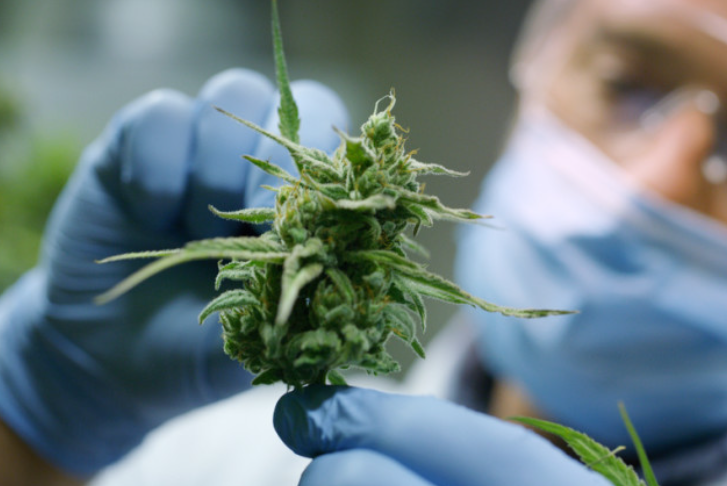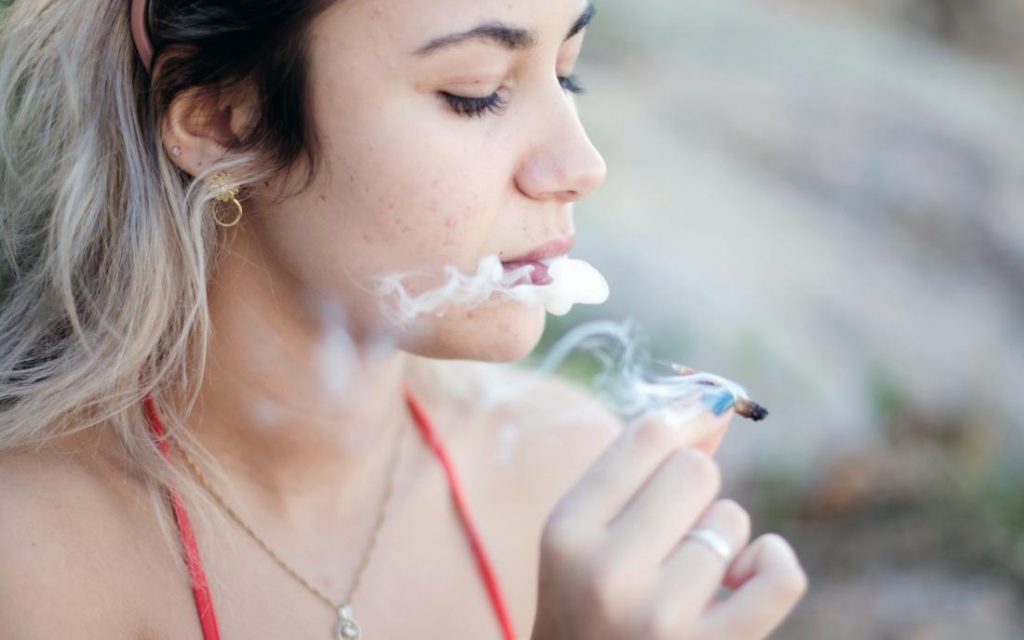What’s Stronger Delta 8 Or THCV?

Table of Contents
Are you curious about the differences between Delta 8 and THCV? These two compounds have been making waves in the cannabis industry lately, but which one is stronger? In this article, we'll explore the properties and effects of Delta 8 and THCV and compare them to see which one comes out on top.
We'll examine the chemical makeup of both compounds, their psychoactive properties, and any potential health benefits. So, whether you're a seasoned cannabis user or just starting, read on to find out which is the winner in the battle of Delta 8 vs. THCV.
READ: Are THC-O And HHC The Same Thing?
What’s Stronger Delta 8 Or THCV?

The strength of a cannabinoid depends on how well it can interact with the cannabinoid receptors (CB1 and CB2) of your body’s endocannabinoid system, or ECS. The ECS controls body functions like mood, memory, and sleep.
When you take THCV or Delta 8, the cannabinoid stimulates the cannabinoid receptor CB1, bringing a psychoactive buzz. How strong this psychoactive buzz is depends on the binding ability of the cannabinoid. Delta 8 has a binding ability weaker than Delta 9 - THC (the main psychoactive component in marijuana that gets people high). Its intoxicating times are 50% less intense than Delta 9 - THC.
What type of high can you expect from Delta 8? The cannabinoid provides a deeply calming effect that can relieve stress from your mind and relax your body's muscles. Moreover, Delta 8 can enhance your creativity and productivity at lower doses.
On the other hand, THCV’s binding ability is weaker than Delta 8. It’s around 25% as potent as Delta 9 - THC and 50% as strong as Delta 8 - THC. Furthermore, the cannabinoid can act like a non-intoxicating cannabinoid at lower doses, which gets you high at higher doses. What type of effects can THCV give? The cannabinoid is known for uplifting mood, enhancing creativity, improving concentration, and giving an energy boost.
How Are Delta 8 And THCV Different?
- Nature Of Cannabinoid
Delta 8 and THCV are natural psychoactive cannabinoids occurring in cannabis. THCV originates from the cannabinoid THCVA, a byproduct of the decomposition of CBGA. On the other hand, Delta 8 comes from the conversion of Delta 9 - THC into CBN. Although both cannabinoids exist in cannabis, their concentrations are deficient, making them difficult to extract.
To obtain high concentrations of Delta 8 and THCV, manufacturers use an isomerization process that converts hemp-derived CBD by rearranging its molecular structure.
- Chemical Structure
Delta 8 and THCV consist of the generic THC structure but with a tiny difference. Delta 8 has five carbon atoms in its carbon chain, like Delta 9 - THC, whereas THCV has only three carbon atoms in its carbon chain.
- Product Range And Cost
The price ranges and types of products available for Delta 8 and THCV can vary widely depending on the supplier and the specific product. Generally speaking, Delta 8 products tend to be more widely available and less expensive than THCV products, as Delta 8 is a more common cannabinoid.
Delta 8 products come in various forms, including tinctures, edibles, vape cartridges, and flower. THCV products, on the other hand, are less common and may be more challenging to find. Due to their rarity, they're often sold in concentrates, edibles, or tinctures and may be more expensive than Delta 8 products.
Are Delta 8 And THCV Legal In The US?

At the federal level, Delta 8 and THCV are technically legal under the 2018 Farm Bill. The Farm Bill legalized hemp-derived products that contain less than 0.3% Delta 9 THC, which means that Delta 8 and THCV products made from hemp are legal.
At the state level, the legality of Delta 8 and THCV can vary widely. Some states have explicitly banned Delta 8, while others have not. Similarly, some states have legalized medical or recreational cannabis that may contain THCV, while others have not.
While Delta 8 and THCV are legal under federal law, the legality of these cannabinoids can vary widely depending on where you live. It's always a good idea to research and stay current on any changes to state and federal laws regarding cannabis and its derivatives.
READ: Is THC-P Stronger than THC?
How Long Do The Effects Of Delta 8 And THCV Last?

The duration of the effects of Delta 8 and THCV can vary depending on several factors, including the dose, method of consumption, and tolerance. In general, the effects of Delta 8 and THCV can last anywhere from 2–8 hours, with peak effects occurring around 1-2 hours after consumption.
5 Frequently Asked Questions
- What Is The Cost Of Delta 8 Gummies?
The cost of Delta 8 gummies can vary depending on the brand, potency, and quantity. On average, a pack of 20-30 gummies can cost between $30.00 and $60.00.
- Do THCV Vape Carts Go Bad?
Like all cannabis products, THCV vape carts can go bad over time, particularly if not stored properly. It's important to store them in a cool, dry place.
- Can You Add Delta 8 Tinctures Into Food?
Yes, you can add Delta 8 tinctures into food. Tinctures are designed to be ingested and can easily be added to drinks, baked goods, and other foods to provide a discreet and convenient way to consume Delta 8.
- Can You Store THCV Flowers In The Fridge?
It's not recommended to store THCV flowers in the fridge, as it can affect the quality and potency of the product. It's best to store them in a cool, dry place.
- What Signs Indicate You Must Throw Away Your Pack Of Delta 8 Gummies?
Signs that may indicate it's time to throw away your pack of Delta 8 gummies include mold or discoloration, a strange smell or taste, or an expiration date.
Where To Find The Best Cannabinoid Products?
Eighty-Six is the best place to buy all your cannabinoid products because of their commitment to quality. Their products are rigorously tested and verified for purity and potency, so you can be sure you’re getting the highest quality. In addition, they are committed to offering the most competitive prices, so you can be sure you’re getting the best deal possible. Plus, their customer service is top-notch.
They are friendly knowledgeable; they are friendly, knowledgeable, and always willing to answer product questions. With their commitment to quality, competitive prices, and excellent customer service, it’s easy to see why Eighty-Six is the best place to buy all your cannabinoid products. Use code “SLYNG15” for an incredible 15% OFF your entire order from Eighty Six!
READ: Is Delta 10 Stronger Than THCP?
What’s Stronger Delta 8 Or THCV - Conclusion
Delta 8 and THCV are two popular cannabinoids in the cannabis industry, but which one is stronger? Delta 8 has a weaker binding ability than Delta 9-THC, provides a calming effect, and enhances creativity. THCV has a weaker binding ability than Delta 8 and can act as a non-intoxicating cannabinoid at lower doses, with mood-enhancing and energy-boosting effects.
